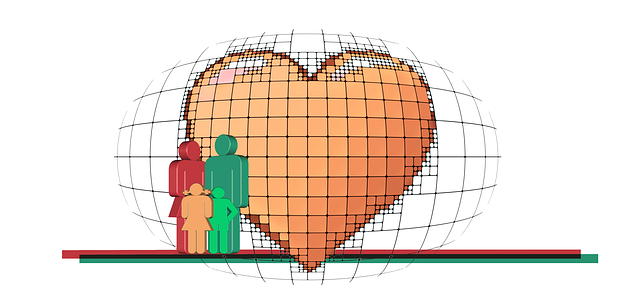Translation services for Healthcare Insurance Forms UK play a crucial role in accurately conveying complex medical and insurance terminology within the linguistically diverse context of the UK's healthcare system. These specialized services navigate the challenges of cultural nuances, idiomatic expressions, and legal compliance, ensuring that both patients and healthcare providers receive clear, accurate, and compliant information. Utilizing advanced AI and machine learning technologies in combination with expert human oversight, these translation services bridge language barriers while maintaining the integrity and privacy of health records and insurance policies. They are essential for effective communication across multicultural populations, enhancing service delivery within the UK's healthcare sector and facilitating informed decision-making by patients and insurers.
navigating the complexities of healthcare insurance forms is a critical task, especially when language barriers are involved. In the UK, where a diverse population requires access to clear and accurate medical information, the demand for professional translation services has become increasingly significant. This article delves into the multifaceted role these services play within the National Health Service (NHS) and beyond, highlighting the importance of choosing a competent provider. We explore the technical expertise required, the challenges presented by cultural nuances, and how advanced technology supports precise translations. Through case studies that exemplify successful translations in the UK, readers will gain insights into best practices for selecting translation services for healthcare insurance forms, ensuring informed decision-making and effective communication across linguistic boundaries.
- Understanding the Demand for Accurate Translation of Healthcare Insurance Forms
- The Role of Professional Translation Services in the UK's NHS
- Key Considerations When Selecting a Translation Service for Medical Documents
- The Importance of Technical Expertise in Healthcare Insurance Form Translation
- Challenges and Solutions in Translating Complex Insurance Forms
- Ensuring Compliance with UK Regulatory Standards in Translations
- The Impact of Cultural Nuances on the Translation Process
- How Technology Aids in Providing Precise Healthcare Insurance Form Translations
- Case Studies: Successful Translations of Healthcare Insurance Forms in the UK
Understanding the Demand for Accurate Translation of Healthcare Insurance Forms

Navigating the complexities of healthcare insurance forms requires precision and a thorough understanding of both medical terminology and the nuances of language. As the UK continues to be a melting pot of cultures, the demand for professional translation services that cater specifically to healthcare insurance documents has grown significantly. This surge in demand stems from the necessity for clear and accurate translations that convey all critical information without ambiguity. Patients, healthcare providers, and insurers must have confidence that the translated forms accurately reflect the original content, ensuring compliance with legal standards and providing unambiguous guidance on coverage, treatments, and entitlements.
The translation of healthcare insurance forms in the UK is a specialized task that goes beyond mere word-for-word transcription. It involves comprehending the intricate details of health insurance policies and translating them into another language while maintaining the integrity of the information. Professionals in this field undergo rigorous training to handle sensitive documents, ensuring that each translation is accurate and contextually appropriate. This level of expertise is crucial for maintaining trust and transparency within the healthcare system, allowing for seamless communication across linguistic barriers and fostering better health outcomes for multilingual communities.
The Role of Professional Translation Services in the UK's NHS

When it comes to healthcare in the UK, the National Health Service (NHS) stands as a cornerstone of support for citizens, providing comprehensive medical services across the nation. A pivotal aspect of this service is ensuring that all patients, regardless of language barriers, receive clear and accurate information. This is where professional translation services for Healthcare Insurance Forms in the UK become indispensable. These services facilitate the understanding of critical health documentation by translating insurance forms into the patient’s preferred language, thereby eliminating miscommunication and ensuring that patients receive the healthcare they need without confusion or risk of error. The accuracy of such translations is paramount, as it directly impacts patient care and safety. Moreover, these translation services are not just about word-for-word conversion; they involve a nuanced understanding of medical terminology, cultural context, and the legal implications of healthcare documentation within the UK’s regulated environment. By engaging professional translation services for Healthcare Insurance Forms UK, the NHS can uphold its commitment to providing high-quality care to all, breaking down language barriers and fostering inclusivity in healthcare provision.
Key Considerations When Selecting a Translation Service for Medical Documents

When navigating the complexities of healthcare insurance forms in the UK, the accuracy and cultural sensitivity of translations are paramount. Selecting a translation service that specialises in medical documentation is crucial to ensure that the nuances of language and healthcare terminology are conveyed correctly. A reputable service will not only provide precise linguistic equivalents but also be well-versed in the legal and regulatory framework governing health information. This expertise is essential to protect patient privacy and comply with data protection laws such as the UK General Data Protection Regulation (UK GDPR).
Moreover, it is imperative to opt for translation services that employ native-speaking linguists with a background in healthcare. These professionals are adept at understanding both the source and target languages’ medical lexicon, ensuring that specialized terms and jargon are translated with the utmost precision. Additionally, choosing a service that offers industry-specific glossaries and has a proven track record of working with healthcare providers will enhance the reliability of the translations. This is particularly important for insurance forms, which often contain critical information related to policy coverage, patient rights, and treatment protocols. By prioritizing these considerations, individuals and organizations can select a translation service that not only meets their immediate needs but also upholds the integrity of the medical information being communicated across language barriers.
The Importance of Technical Expertise in Healthcare Insurance Form Translation

navigating the complexities of healthcare insurance forms requires a high level of precision and technical expertise. In the UK, where diverse populations with varying needs interact with these forms daily, the necessity for accurate translations cannot be overstated. Professional translation services specialising in healthcare insurance forms are indispensable, offering linguistic proficiency coupled with industry-specific knowledge. These services ensure that all nuances of medical terminology and insurance jargon are conveyed correctly, facilitating clear communication between patients, healthcare providers, and insurers. This accuracy is crucial for maintaining the integrity of patient care, compliance with legal standards, and the operational efficiency of health service organisations. By choosing translation services tailored to the UK’s healthcare insurance landscape, stakeholders can confidently bridge language barriers, leading to better-informed decisions and outcomes for all parties involved.
Challenges and Solutions in Translating Complex Insurance Forms

Navigating the intricacies of healthcare insurance forms presents unique challenges in translation, particularly within the context of the UK’s diverse linguistic and cultural landscape. The complexity of these documents stems from the precise terminology used, which must accurately reflect the legal and medical nuances inherent in health insurance policies. Translation services for Healthcare Insurance Forms UK must possess specialized knowledge to handle this delicate task effectively. Common obstacles include idiomatic expressions, colloquialisms, and abbreviations that do not have direct equivalents in other languages.
To overcome these challenges, professional translation services employ a combination of expertise in both healthcare and linguistics. Utilizing experienced translators who are native speakers, these services ensure that the translated forms convey the exact meaning intended by the original text. Advanced technology, such as terminology management systems, is also employed to maintain consistency across documents. Additionally, a rigorous quality assurance process is essential to verify that all medical and insurance-specific terms are accurate and appropriate for the target audience. By adhering to these practices, translation services can effectively bridge language barriers and facilitate seamless understanding of healthcare insurance forms for multilingual individuals in the UK.
Ensuring Compliance with UK Regulatory Standards in Translations

When navigating the intricate world of healthcare insurance forms in the UK, compliance with regulatory standards is paramount. As such, translation services for Healthcare Insurance Forms UK must be precise and accurate to meet the stringent requirements set forth by authorities like the Office of Communications (Ofcom) and the Information Commissioner’s Office (ICO). Professionals in this field are tasked with not only converting language but also understanding the complexities of healthcare terminology and legal jargon. This ensures that every form, from patient consent documents to insurance claims, is rendered correctly, reflecting the original content’s intent and meaning while adhering to data protection principles.
Choosing a translation service for Healthcare Insurance Forms UK that prioritises accuracy and compliance with regulatory standards is essential. These services employ expert linguists with specialized knowledge in healthcare and insurance sectors. They are adept at leveraging advanced technologies and following industry-specific protocols, which guarantees the translations are not only legible and comprehensible to a UK audience but also compliant with the necessary legal and regulatory frameworks. This commitment to excellence is crucial for maintaining trust and integrity within the healthcare insurance domain, ensuring that individuals receive the care and benefits they are entitled to without misunderstandings or miscommunications due to language barriers.
The Impact of Cultural Nuances on the Translation Process

When it comes to translating healthcare insurance forms in the UK, understanding cultural nuances is paramount. The intricacies of language extend beyond mere word-for-word equivalents; they encompass idiomatic expressions, regional dialects, and the subtleties of context that can significantly alter meaning. Professional translation services specialising in this field must navigate these complexities to ensure accuracy and clarity. For instance, medical terminology may differ between English-speaking countries, with variations in terms like ‘GP’ (General Practitioner) or ‘NHS’ (National Health Service), which are integral to understanding within the UK but may not have direct equivalents elsewhere. Moreover, the cultural context of healthcare interactions, including privacy concerns and the nature of doctor-patient relationships, must be accurately conveyed to maintain the integrity of the information being translated. This is where expert translation services for healthcare insurance forms in the UK excel, providing culturally attuned translations that bridge communication gaps while adhering to the stringent standards required in the health sector. Their role is not just to translate words but to ensure that the intent and implications of the original text are faithfully rendered in the target language, thereby facilitating informed decision-making for patients and insurers alike.
How Technology Aids in Providing Precise Healthcare Insurance Form Translations

In an era where healthcare is becoming increasingly globalized, the need for precise translations of insurance forms is paramount, especially in regions like the UK. Technology has significantly advanced in the realm of translation services for Healthcare Insurance Forms UK, enabling linguistic accuracy and cultural nuance that are crucial for effective communication. With the integration of artificial intelligence and machine learning algorithms, these services can now process and translate complex medical terminology with a high degree of precision. This ensures that patients and healthcare providers receive information that is not only accurate but also compliant with local regulations and practices. The use of specialized software also allows for real-time updates and consistent translations across various documents, which is essential for maintaining the integrity of health records and insurance policies. Furthermore, human experts in both linguistics and healthcare oversee these technological processes to refine and validate translations, ensuring that cultural subtleties are considered and that terminology adheres to medical standards within the UK. This collaborative approach between technology and expert knowledge minimizes errors and misinterpretations, thereby enhancing patient care and facilitating smoother interactions between international patients and UK healthcare providers.
Case Studies: Successful Translations of Healthcare Insurance Forms in the UK

Navigating the complexities of healthcare insurance forms requires precision and cultural sensitivity, especially in a diverse nation like the United Kingdom. Professional translation services play a pivotal role in ensuring that patients and providers can communicate effectively across language barriers. A case study showcases a leading translation service that successfully adapted American healthcare insurance forms for use in the UK. This involved not only translating medical terminology but also interpreting the context to align with the UK’s National Health Service (NHS) framework. The project necessitated a deep understanding of both the source and target languages, as well as the regulatory environment governing healthcare documentation in the UK. By employing expert linguists specialising in medical jargon and localisation practices, the translation service ensured the forms were not only accurate but also user-friendly for healthcare professionals and patients alike. Another instance involved translating insurance forms for a multinational company with a diverse workforce. The challenge was to tailor the forms to comply with both UK law and the company’s international policies. This required a seamless integration of legal terminology with an understanding of cultural nuances, ensuring the integrity of the information was maintained throughout the translation process. In both cases, the commitment to quality and attention to detail by these translation services resulted in flawless translations that facilitated effective communication, enhancing the delivery of healthcare services for a multicultural population within the UK.
In concluding, the necessity for precise and reliable translation services for healthcare insurance forms within the UK is undeniable. As the UK’s National Health Service (NHS) continues to cater to a diverse population, the role of professional translation services becomes increasingly vital. It is clear that when selecting a service provider, expertise in both medical terminology and regulatory compliance is paramount. The challenges presented by complex forms are not insurmountable, as technology and specialized knowledge combine to deliver accurate translations that respect cultural nuances. The case studies highlight the successes of these services, reinforcing their value in ensuring equitable access to healthcare for all individuals in the UK. For those requiring top-tier translation of health insurance forms, it is advisable to engage with professional services that specialize in this niche area, ensuring clarity and compliance across all documents.
